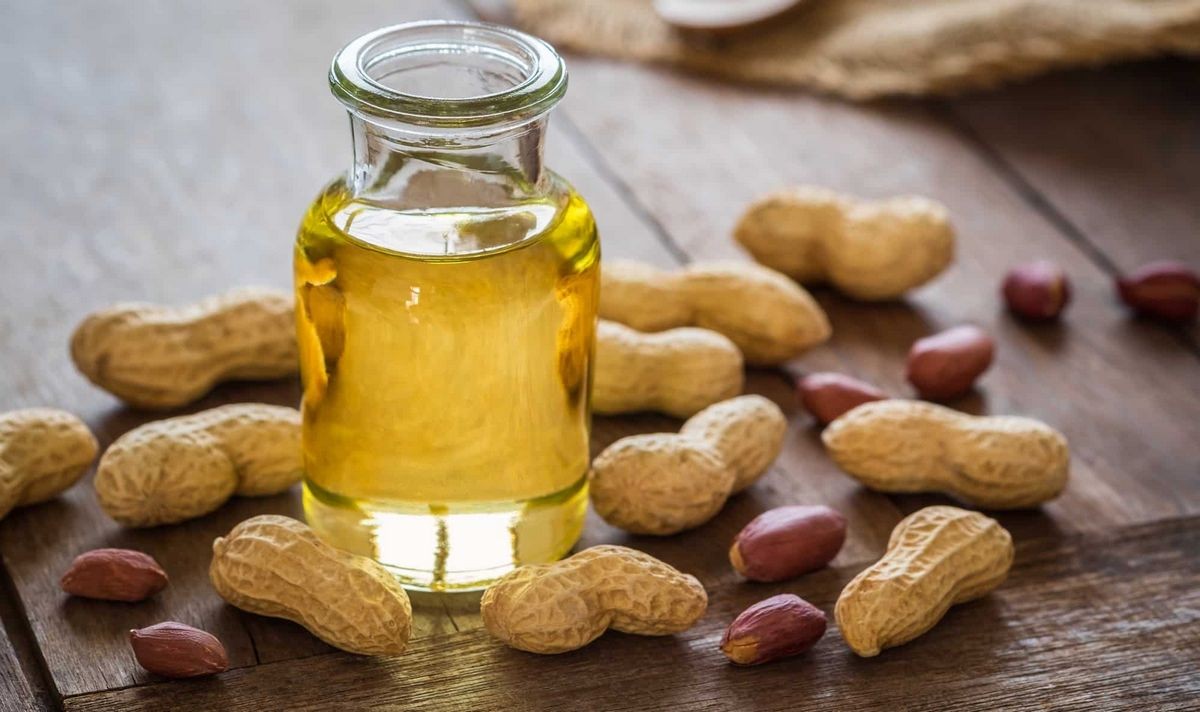
Contents
The Truth about Peanut Oil: Is it Healthy?
Peanut oil, derived from peanut plant seeds, is commonly used in baking, sautéing, frying, and other methods of cooking.
Due to its high levels of vitamin E and monounsaturated and polyunsaturated fats, peanut oil is a healthy and affordable alternative to vegetable oils.
What is peanut oil?
Peanut oil, also known as Arachis oil, is a type of vegetable oil made from peanuts. It is commonly used in Southeast Asian and Chinese cuisines.
Peanut oil is a low-cost and versatile oil with a high smoking point.
It is suitable for deep frying, stir-frying, roasting, and baking.
Types of peanut oil
Peanut oil is available in several varieties, including:
- Refined peanut oil: Best for deep-frying, this oil undergoes extensive processing to remove allergenic proteins.
- Gourmet peanut oil: Unrefined and roasted, it adds a rich nutty flavor to stir-fries, baked goods, and cooked dishes.
- Peanut oil blends: Combining peanut oil with other similar-tasting oils, like soybean oil, creates an affordable option for consumers.
- Cold-pressed: Produced by crushing peanuts without high temperatures, this oil retains nutritional value and a nutty flavor.
Nutritional content of peanut oil
| Calories | 119 |
| Fat | 14 grams |
| Saturated fats | 2.3 grams |
| Monounsaturated fats | 6.2 grams |
| Polyunsaturated fat | 4.3 grams |
| Vitamin E | 11% of the recommended dietary intake (RDI) |
| Phytosterols | 27.9 mg |
22 health benefits of peanut oil
- Peanut oil offers a nutty flavor and works well in most recipes.
- With a high smoke point, it can withstand high temperatures without burning.
- Peanut oil is rich in vitamin E, which provides antioxidant benefits and protects against chronic diseases.
- Consumed in moderation, peanut oil is a healthy addition to your diet due to its healthy fat content.
- It contains antioxidants and good fats that promote heart health and help regulate blood sugar levels.
- High levels of unsaturated fats in peanut oil reduce the risk of heart disease.
- Vitamin E in peanut oil acts as an antioxidant, preventing damage from free radicals and potential cancer development.
- Phytosterols in peanut oil, including beta-sitosterol, may protect against colon, prostate, and breast cancers.
- Phytosterol consumption is associated with increased antioxidant activity and reduced oxidative stress.
- Replacing saturated fats with polyunsaturated fats can improve insulin secretion and help control blood sugar levels.
- Monounsaturated and polyunsaturated fats in peanut oil lower LDL cholesterol levels, preventing atherosclerosis, heart disease, and stroke.
- Resveratrol in peanut oil reduces blood pressure and stress on the cardiovascular system.
- Peanut oil boosts cognitive function, strengthens the immune system, and lowers blood pressure.
- Diverse fatty acids in peanut oil, such as oleic, stearic, palmitic, and linoleic acid, improve overall health.
- Peanut oil maintains healthy skin, protecting against aging signs caused by free radicals.
- It stimulates white blood cell production, boosting the immune system’s ability to fight off foreign agents.
- Vitamin E in peanut oil protects against infections and viruses.
- The antioxidant properties of peanut oil support red blood cell creation, cell signaling, and preventing blood clots.
- Vitamin E reduces the risk of heart disease, cataracts, malignancies, and age-related early dementia.
- Peanut oil promotes hair growth, strengthens hair follicles, and reduces damage and dandruff.
- It helps prevent inflammatory conditions like arthritis and alleviates pain and joint inflammation.
- Peanut oil aids in preventing stomach disorders, such as constipation, digestive problems, and diarrhea.
QUESTION
5 risks of peanut oil
- Peanut allergies: Peanut allergy can cause severe reactions, but refined peanut oil may be tolerated by those with allergies.
- Heart disease: Consuming too much omega-6 fatty acids, found in peanut oil, can increase the risk of heart disease.
- Weight gain: Peanut oil is high in calories, so excessive consumption can lead to weight gain and obesity.
- Oxidation: Peanut oil oxidizes easily and contains pro-inflammatory omega-6 fatty acids. It’s best to balance its consumption with other healthy fats.
- Quality deterioration: Reusing peanut oil multiple times causes quality to decline, indicated by cloudiness or unpleasant odors.
8 products made from peanuts
Peanuts are used to make various products, including:
- Peanut butter
- Roasted peanuts
- Peanut sauce
- Peanut jam
- Peanut milk
- Peanut flour
- Peanut snacks (sweet and salted bars)
- Peanut cheese analog
Suitable substitutes for peanut oil
Consider using these popular and healthier cooking oils:
- Olive oil
- Coconut oil
- Avocado oil
- Canola oil
- Sunflower oil
- Soybean oil


